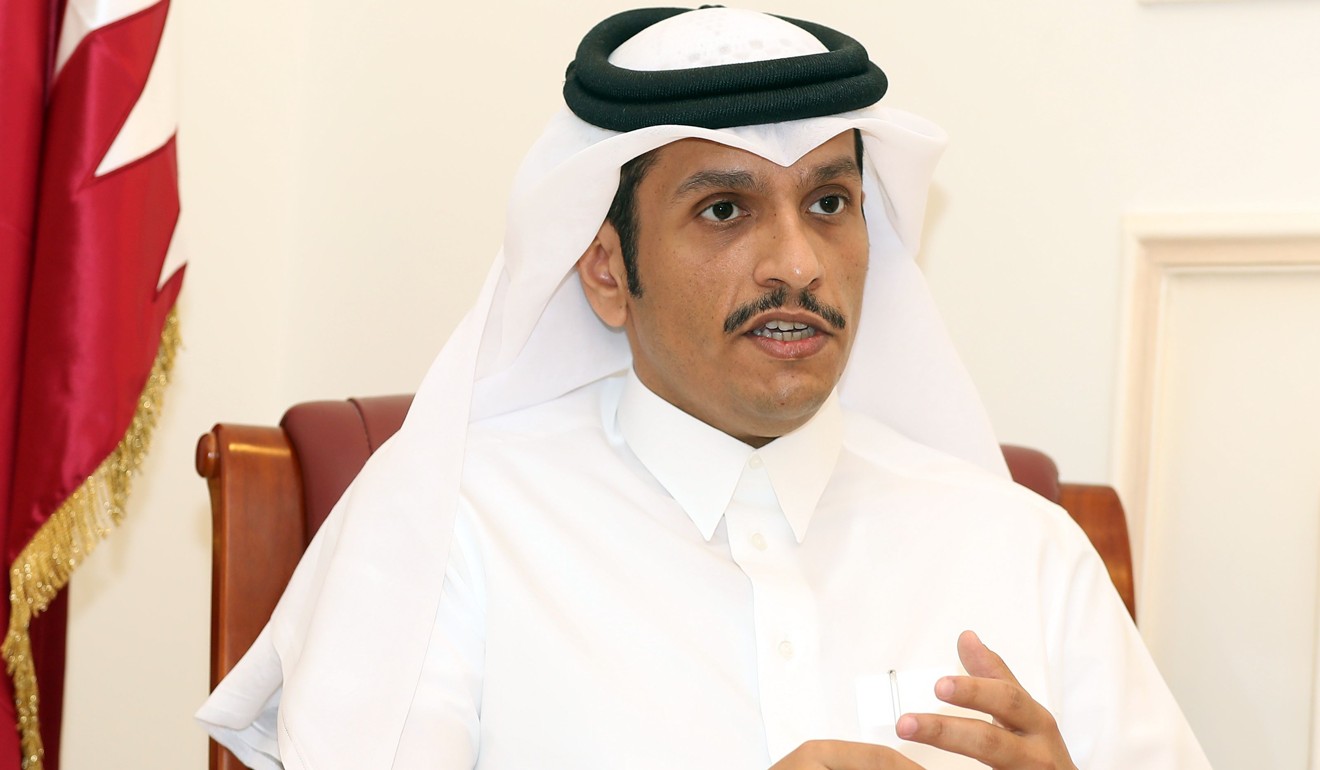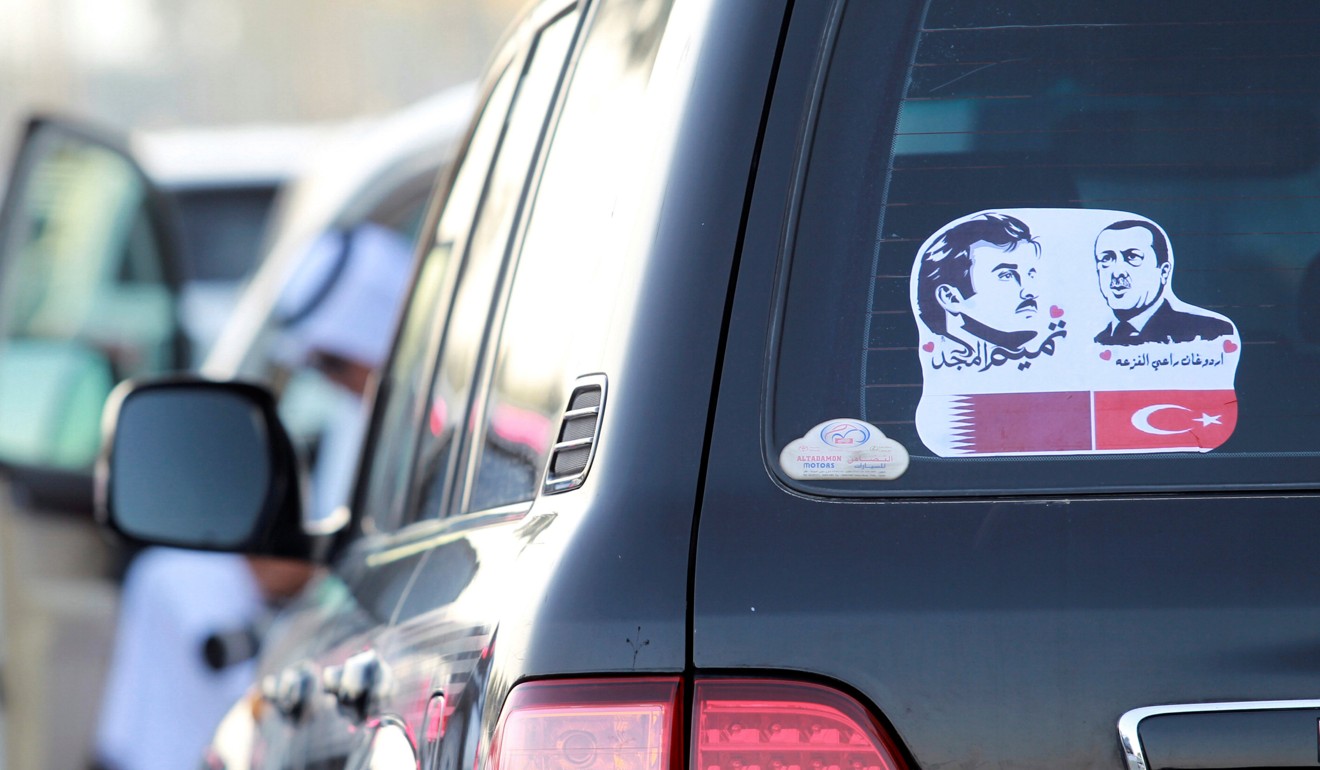
Qatar strikes defiant tone as no end in sight to Gulf crisis
Qatari officials struck a defiant tone on Monday, as the crisis in the Gulf entered a second week with no sign of a diplomatic resolution between the tiny Arab state and the Saudi-led bloc that severed ties with it.
Foreign Minister Mohammed Al Thani expressed his government’s frustration at not receiving specific demands from the Saudi alliance, which he said meant there was no basis for a diplomatic solution. The finance minister and the central bank said Qatar has the financial firepower to defend its currency and economy, while the head of Qatar Airways -- suffering from the regional overflight blockade -- accused the US of exacerbating regional tensions.
Saudi Arabia, the United Arab Emirates, Bahrain and Egypt have cut diplomatic and transport links with Qatar, calling on it to distance itself from Iran and to stop funding Islamist groups. Qatar denies sponsoring terrorism and accuses the Saudis of seeking to dominate smaller neighbours.
“Just as they have a right to accuse, we have the right to respond and the right to see the proof behind these allegations,” Al Thani told reporters in Paris in comments broadcast by Al-Jazeera. “We would understand these concerns if their assumption was that our policy is impacting their security, and we would sit at the table, discuss them and refute these allegations.”
The unprecedented measures have prompted investors and economists to ponder how long Qatar, the world’s biggest exporter of liquefied natural gas, can weather the pressure without having to devalue its currency or sell any of its global assets. Qatar’s sovereign wealth fund, one of the world’s largest, controls stakes in companies from Glencore Plc to Barclays Plc.

Qatar’s most liquid bonds tumbled last week as its sovereign rating was cut and bets against its currency surged.
Finance Minister Ali Shareef Al Emadi said that the plunge in Qatari assets was a “normal” reaction to the Saudi-led move, telling CNBC: “We’re business as usual and we’re open for business.” The central bank adopted a similar tone, saying it had sufficient reserves to meet all requirements and that banks were functioning normally without disruption, state-run Qatar News Agency reported.
“Our reserves and investment funds are more than 250 per cent of gross domestic product,” said Al Emadi, who sits on the board of the sovereign wealth fund. “I don’t think there is any reason that people need to be concerned about what’s happening or any speculation on the Qatari riyal.”
Ratings companies have been less sanguine about the feud’s effect on the economy of the world’s largest exporter of liquefied natural gas.
S&P Global Ratings lowered Qatar’s long-term rating by one level to AA- last week and put it on negative watch, on concern the country’s finances will be affected.
At the same time, it said on Sunday that Qatari banks are strong enough to survive the pull out of all Gulf money and a quarter of their other foreign holdings. In a worst case scenario, only two unidentified lenders would have to dip into their investment securities portfolio, S&P concluded.
Moody’s Investors Service sees the potential to push up Qatar’s borrowing costs. Qatar’s sovereign credit strength will be hurt primarily on higher funding costs, while a pick-up in foreign investment outflows would drain foreign-exchange reserves, it said.
“A lot of people think we’re the only ones to lose in this,” Al Emadi said. “If we’re going to lose a dollar, they will lose a dollar also.”
While Kuwaiti officials are mediating in the conflict, those efforts are in question amid conflicting signals from US President Donald Trump’s administration.
Trump said on Friday he backed the Saudi-led movement because Qatar has historically “been a funder of terrorism at a very high level.” He spoke after a more conciliatory statement from Secretary of State Rex Tillerson, who urged the easing of a “blockade” he said was hindering the fight against Islamic State and provoking food shortages.
“I am extremely disappointed,” Qatar Airways Chief Executive Officer Akbar Al Baker said in an interview published by CNN on Monday. The US “should be the leader trying to break this blockade, and not sitting and watching what’s going on and putting fuel” on the fire.
The blockade on Qatari flights also violates International Civil Aviation Organisation rules, and Qatar Airways will use “legal channels to object to this,” Al Baker said.
After its “big effort to internationalize its crisis,” Qatar “will discover the solution is in Riyadh,” UAE Foreign Minister Anwar Garghash said on Twitter on Monday, in an apparent response to the comments from Qatari officials.

Last week, Saudi Arabia and its allies published a list of individuals and organisations they say are involved in terrorism and mostly linked to Qatar, including Yusuf al-Qaradawi -- an Egyptian-born cleric linked to the Muslim Brotherhood with ties to Qatari royals.
It also blacklisted charity organizations including Qatar Voluntary Center and Qatar Charity, as well as some individuals sanctioned by the US over links to al-Qaeda in 2011.
“Qatar deals with governments and not political parties,” Al Thani said.

